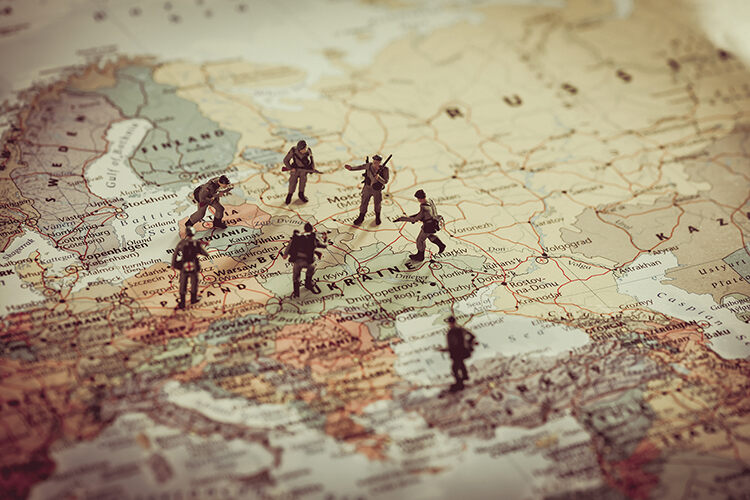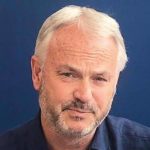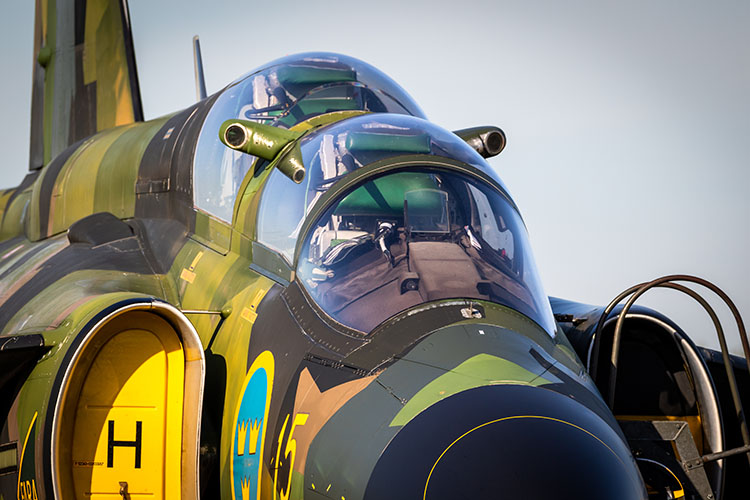

Geopolitical Hotspot
Tim Marshall considers the impact of the Polish prime minister’s warning that we are now in a pre-war era
Poland’s prime minister, Donald Tusk, got the headlines, but he’s far from alone in warning that we’re now in the ‘pre-war years’. Ahead of NATO’s 75th anniversary, Tusk said: ‘I know it sounds devastating, especially to people of the younger generation, but we have to mentally get used to the arrival of a new era…the pre-war era.’
Tusk’s warning is based on Russia’s invasion of Ukraine and the possibility of it winning the war and then looking for its next victim. Similar comments have come from the German defence minister, Boris Pistorius, who believes NATO should prepare for a Russian attack on a NATO country within five to eight years, UK defence secretary Grant Shapps, and the head of the British Army, General Sir Patrick Sanders, who has asked if the world is now in a 1938 moment.
A historical perspective is helpful, and the year 1936 is also relevant. Then, a rearmed and revanchist Nazi Germany was intent on expanding territory and controlling its neighbours. Its intervention in the Spanish Civil War allowed it to test its new Panzer tanks, Stuka dive bombers and Messerschmitt fighter planes. It took the UK and several other countries at least a year to understand this modern form of mechanised warfare and begin preparing for what might come. Their defence industrial bases were restored and munitions stockpiled.
We appear to be at that moment. Russia’s economy went onto a war footing two years ago and now the arms are beginning to flow. In the event of victory in Ukraine, Moscow should be able to rebuild its armed forces to full capability within six years. Conversely, NATO’s munitions stocks have been severely depleted due to supplying Ukraine. Many of the munitions factories, geared for the post-Cold War era, are now being revamped and supply chain vulnerabilities patched.
It will be a long process taking at least five years, probably more. However, the military budgets of many NATO countries are beginning to grow. Some, not fooled by the ‘holiday from history’ of the post-Cold War years, had not shrunk.
It’s no coincidence that the closer a country is to Russia, the greater the understanding of the threat. The collective memory of Russian occupation, in the guise of the Soviet Union, is why Poland spends four per cent of its GDP on defence, why Lithuania re-introduced conscription in 2014 and Latvia followed suit last year, and Estonia never ended it. All three Baltic states spend above the two per cent of GDP NATO target for defence.

Perhaps the most significant example of Europe waking from its post-Cold War slumber is Sweden and Finland ending decades of neutrality and joining NATO in response to Russia’s invasion of Ukraine. Both have well-equipped and trained armed forces. Finland excels in artillery prowess, while Sweden has more than 100 advanced Griffen fighter jets and modern attack submarines.
They also bring a geographic advantage to NATO. Sweden’s membership allows Norway and Finland to be resupplied via a land route, while Finland has the longest alliance member land border with Russia (1,320 kilometres), which it has closed. Together, they allow NATO the ability to control the Baltic Sea in the event of a conflict and an easier sea supply route to the Baltics if the land route is closed.
As early as 2007, Tusk, who understood President Putin’s Russian supremacist mindset, warned that this moment might come. He says nobody except the ‘Baltic States paid any attention to my warnings…Now, without particular satisfaction, I observe the changes that are taking place in all capitals in Europe.’
Well, not quite all. Spain and several others in the alliance remain below NATO’s two per cent defence-spending target.
They have yet to be persuaded of the threat. After all, Putin said last month that it was ‘complete nonsense’ that Russia had designs on any NATO country. But then again, in the days leading up to 24 February 2020, Putin said his troops were only involved in defensive military drills and Moscow denounced warnings that the invasion of Ukraine was imminent as ‘propaganda’.
Tusk revealed that at the European Council in March, Spain’s prime minister, Pedro Sanchez, asked fellow leaders to stop using the word ‘war’ in statements. Tusk explained: ’He argued that people do not want to be threatened in this way, that in Spain, it sounds abstract. I replied that in my part of Europe, war is no longer an abstraction.’




